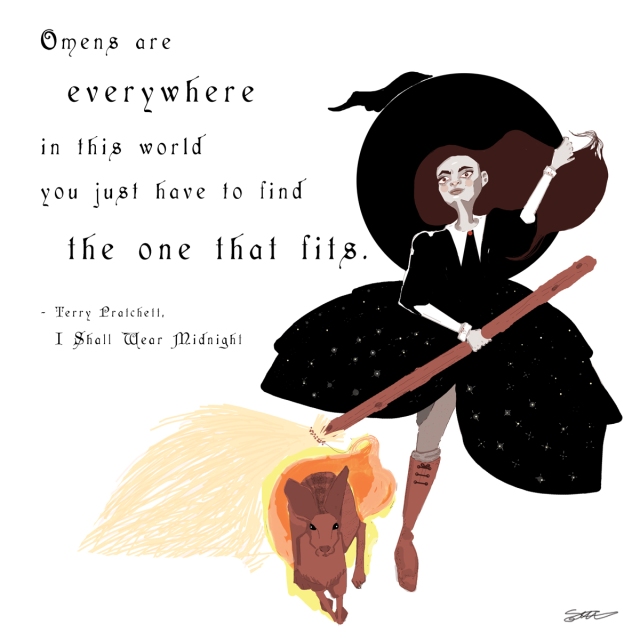
I finished Terry Pratchett’s I Shall Wear Midnight last week, and it was the perfect salve to a week of terrible news and family crisis. Pratchett is always the right move when you’re facing difficult times and need to feel like the world isn’t entirely, completely against you. And I got around to another #ReadtoDraw illustration (above) as a result.
I Shall Wear Midnight is the fourth book in the five-book Tiffany Aching Adventures series, and is one of his Discworld books. But, as is the case with Discworld books, each book stands on its own. The others are referenced here and there, but they aren’t required reading to get what’s happening.
I’m going to read the last book, The Shephard’s Crown, next because it’s the last book Pratchett ever wrote. Predicting that my heart will break, I can then go back to the beginning and read the book I missed–The Wee Free Men. Somehow, I think that will soften the blow and make the final book seem less … final. That’s the strategy.
Here’s the Goodreads blurb, in case you’re interested in reading it (you really should):
It starts with whispers.
Then someone picks up a stone.
Finally, the fires begin.
When people turn on witches, the innocents suffer. . .
Tiffany Aching has spent years studying with senior witches, and now she is on her own. As the witch of the Chalk, she performs the bits of witchcraft that aren’t sparkly, aren’t fun, don’t involve any kind of wand, and that people seldom ever hear about: She does the unglamorous work of caring for the needy.
But someone or something is igniting fear, inculcating dark thoughts and angry murmurs against witches. Aided by her tiny blue allies, the Wee Free Men, Tiffany must find the source of this unrest and defeat the evil at its root before it takes her life. Because if Tiffany falls, the whole Chalk falls with her.
Chilling drama combines with laugh-out-loud humor and searing insight as beloved and bestselling author Terry Pratchett tells the high-stakes story of a young witch who stands in the gap between good and evil.



